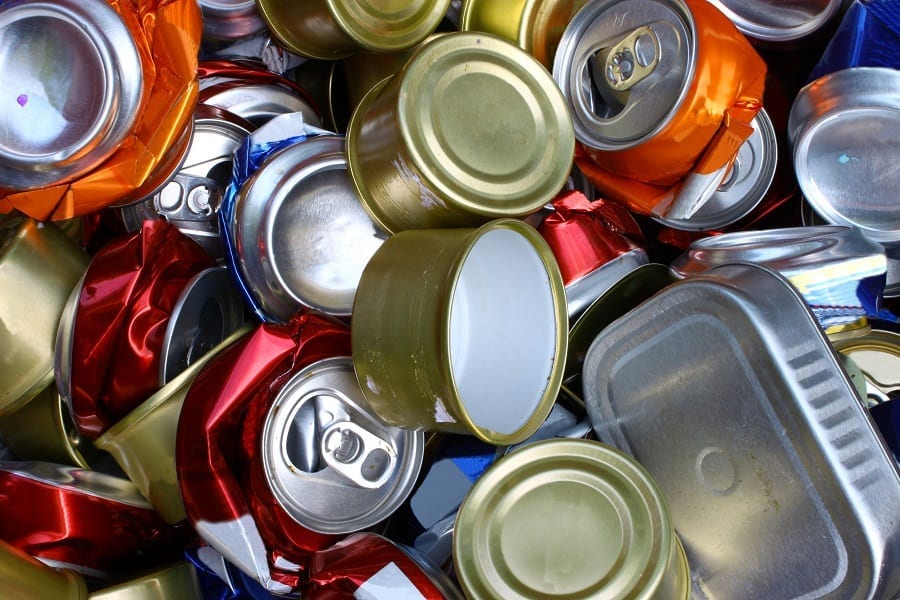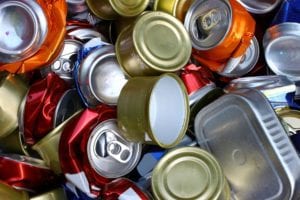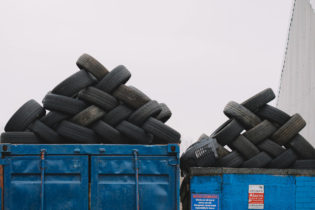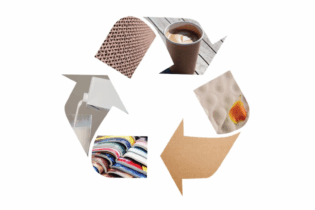
Increasing the amount of metal packaging being recycled is a key focus of MetPac-SA, the newly-formed producer responsibility organisation representing the steel, tinplate and aluminium packaging industries.
Precious metals in the recycling stream
“Aluminium and steel packaging are the world’s most recycled packaging and are literally worth their weight in gold,” says Delanie Bezuidenhout, CEO of MetPac-SA. “Originally, beverage cans were made from steel, and have successfully been collected in South Africa for the past 25 years. In many regards, it can be said that we have lead the way for responsible recovery and recycling of packaging in our country.”
According to Bezuidenhout, aluminium and metal cans are regarded as high value items by recyclers, and therefore has the potential for generating greater income and securing bigger margins across the entire collection chain.
“Buy-back centres continue to pay well for cans that are collected, thereby providing a much needed income for schools and informal collectors,” she said. “We want to ensure that every can entering the market is collected and recycled, and that everybody in the value chain works together – from the informal collectors pushing their trolleys, through to the scrap dealers.”
Recycling aluminium cans not only saves on scarce natural resources, such as Bauxite, but also on energy.
“Twenty recycled cans can be made with the energy needed to produce one new can using primary aluminium ingot,” Bezuidenhout explained. “Similarly, recycling one beverage can save the amount of energy needed to burn a 100w bulb for 4 hours.”
Spreading the message to the community
Bezuidenhout said that over the past 25 years, the local cans industry has built an impressive track record of recycling accomplishments, thanks to the terrific work done by Collect-a- Can and their shareholders who achieved much success with their recoveries and ongoing education about recycling.
Founded by ArcelorMittal South Africa and Nampak as a way to proactively address the beverage can industry’s responsibility to the environment, Collect-a- Can has played a major role in the recovery of scrap tinplate generated in the tinplate and can-making processes. This includes cut-offs, misprints, sub-standard fills, and used metal cans.
Over the years, this initiative has helped improve southern Africa’s used beverage can recovery rate from 18% to around 72%.
Industry accountable for its waste
“We are also fortunate to have important end-users such as Hulamin on our Board of Directors, as they understand the important role recycling plays in ensuring the sustainability of our industry and the environment,” Bezuidenhout says.
Over the past 75 years, Hulamin has been involved in the recycling of their internally generated process scrap as well as the fabrication scrap generated by customers, Bezuidenhout explained. “They took this commitment a significant step further by investing R300 million two years ago in a recycling plant that process and cleans used beverage cans, thereby enhancing the company’s capability in the recycling of aluminium scrap,” she said.
“Recycling certainly makes a lot of business sense to us and for this reason we have adopted the principle of ‘extended producer responsibility’ in our business,” says Riccardo Benedetti, commercial manager of metals and recycling at Hulamin. “Simply put, this means that if we make a product, we also take our share of the responsibility for its recycling at the end of its life.
“Recycling not only supplies us with aluminium raw material, but also ensures that products made from our aluminium are not lost to the precious aluminium resource pool,” he adds.
Scrap with worth
A key recycling collection channel for the metals sector is the scrap metals industry.
“We are expecting the amount of aluminium recoveries from beverage cans alone to increase significantly over the next five years,” Bezuidenhout says. “In order to minimise the risk of illegal scrap exports, which ultimately reduces the locally-available scrap pool, MetPac-SA will also be closely monitoring and working with the players in this sector.”
She emphasised that significant benefits and synergies can be unlocked by packaging waste streams joining hands and working together. “For example, material collection can greatly be enhanced through reverse logistics in the supply chain,” she said.
Driving the recycling message home
Although there are numerous recycling initiatives and incentives established in communities around the country, MetPac-SA believes that an inherent recycling culture still needs to be established in South Africa.
“We are adding our voice to that of other material streams in educating the public around the why, what and how of recycling,” Bezuidenhout says. “Once consumers truly understand the need and value of recycling and the importance of reusing metal packaging, they will stop citing factors such as drop off points or storage space as barriers to recycling.
“However, we do agree with the repeated calls by more established players in the packaging industry that an effective separation-at-source infrastructure needs to be implemented at municipal level.”









